The 27 volumes of newspaper clippings documenting the life of Newton D. Baker Jr., 1894L, and donated to the Powell Archives in 2015 by the law firm BakerHostetler, are now available in Scholarly Commons, the law school’s digital repository.
Below, page from 1912 scrapbook in Baker’s first year as Mayor of Cleveland.
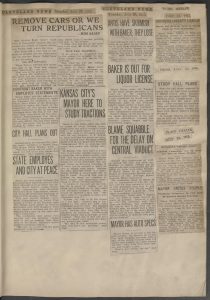
Baker came to Washington and Lee School of Law after graduating from Johns Hopkins University. He practiced law in his home town of Martinsburg, West Virginia and then Cleveland, Ohio. Cleveland became his life-long home where served as assistant law director, city solicitor and Mayor (1912-1916.) President Woodrow Wilson named him Secretary of War, an office he held during and immediately after World War I.
Though there was much more to his life after this — prominence in Ohio and then national Democratic party politics, founder of the law firm today know as BakerHosteler, champion of the League of Nations, etc. — it is these years in public service in Cleveland and Washington, DC that are documented in these scrapbooks.
The research value of the Secretary of War years, where he built an army of 2 million men in a matter of weeks, is obvious. The clippings from the Cleveland public office years, however, are rich as well. Baker was a progressive who believed in the ability of municipal government to make city life safer, healthier and richer for its citizens. In reading these news reports, one can see Baker inventing policies and programs in response to the growing pains of this vibrant early twentieth century city.
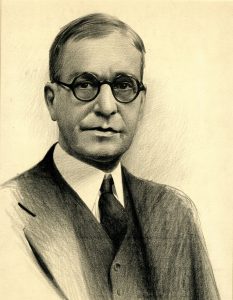
Above, Newton D. Baker in 1929. Ethel Standiford Collection, Western Reserve Historical Society, Cleveland, Ohio.
Before Lewis F. Powell Jr. was elevated to the Supreme Court of the United States, Baker and famed Supreme Court advocate, John W. Davis, were considered the most eminent alumni of the law school. When the dormitories, spoken of today in the one term “Baker-Davis,” were built in their honor, they were the law school dorms.
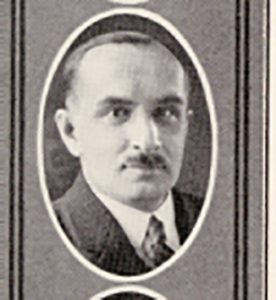
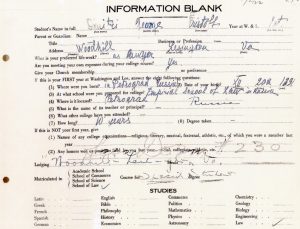




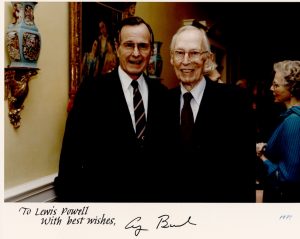
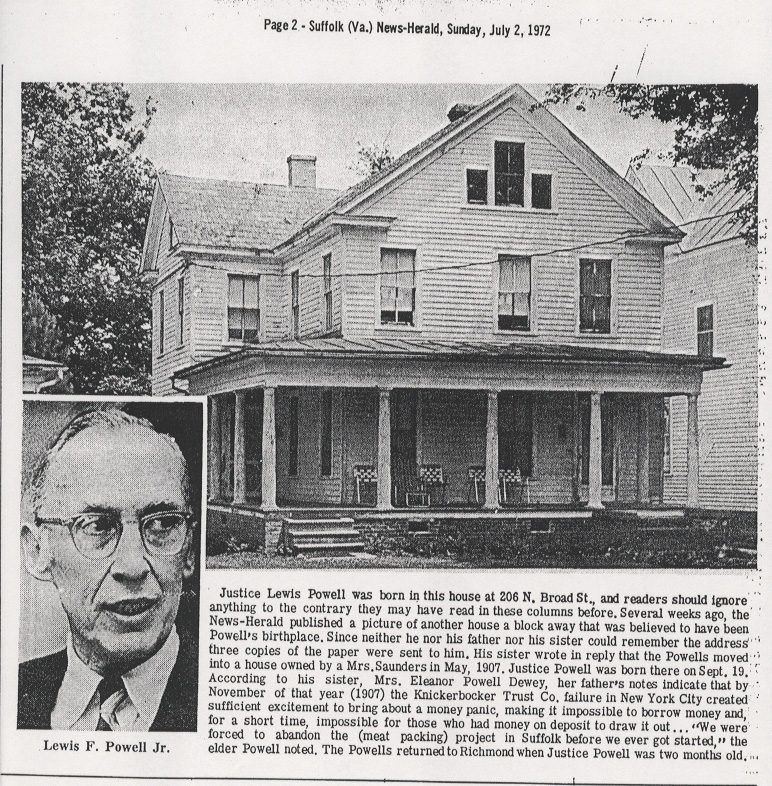 In a short time, however, he was ensconced in the house (see below) in the Forest Hill district of Richmond that would be his home until leaving for college.
In a short time, however, he was ensconced in the house (see below) in the Forest Hill district of Richmond that would be his home until leaving for college. At any event, he appeared to have been a happy baby.
At any event, he appeared to have been a happy baby.